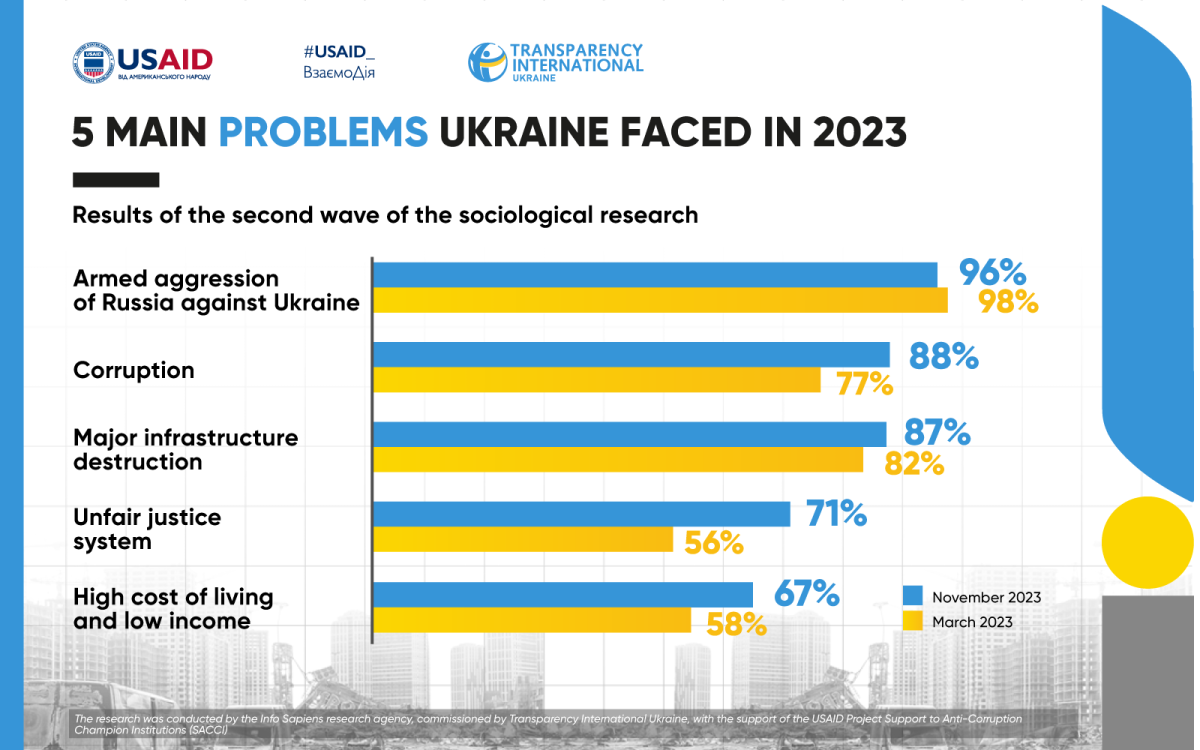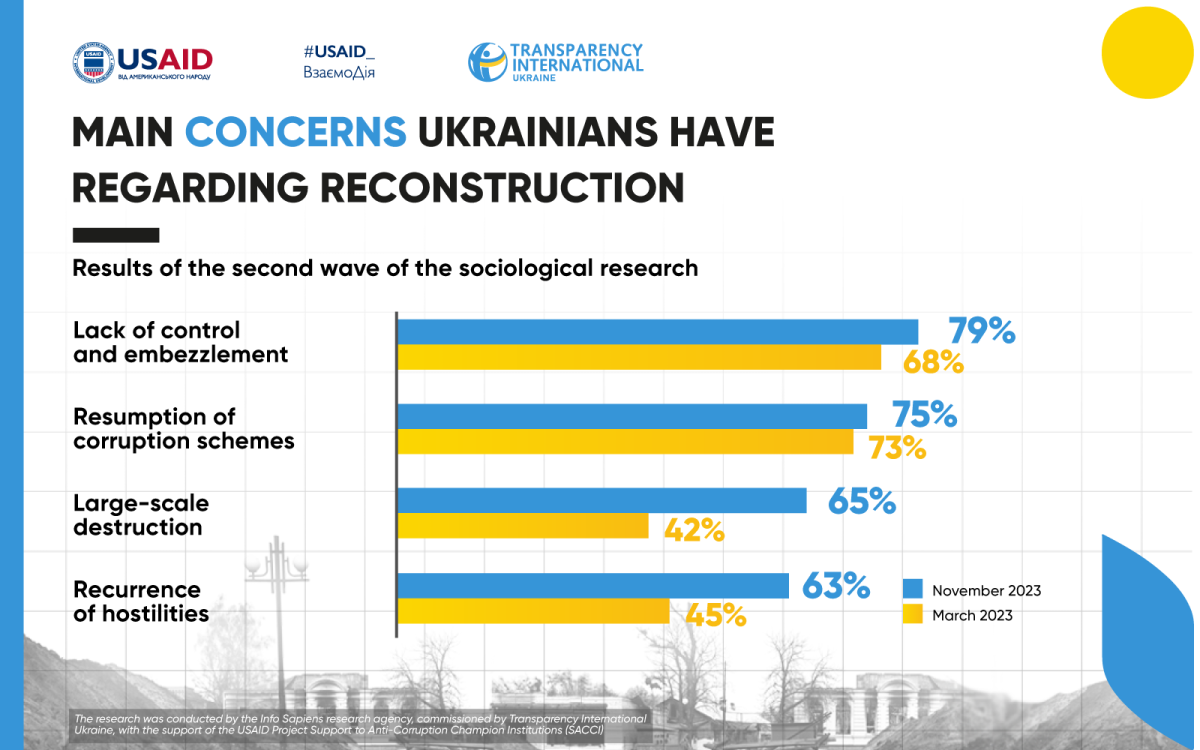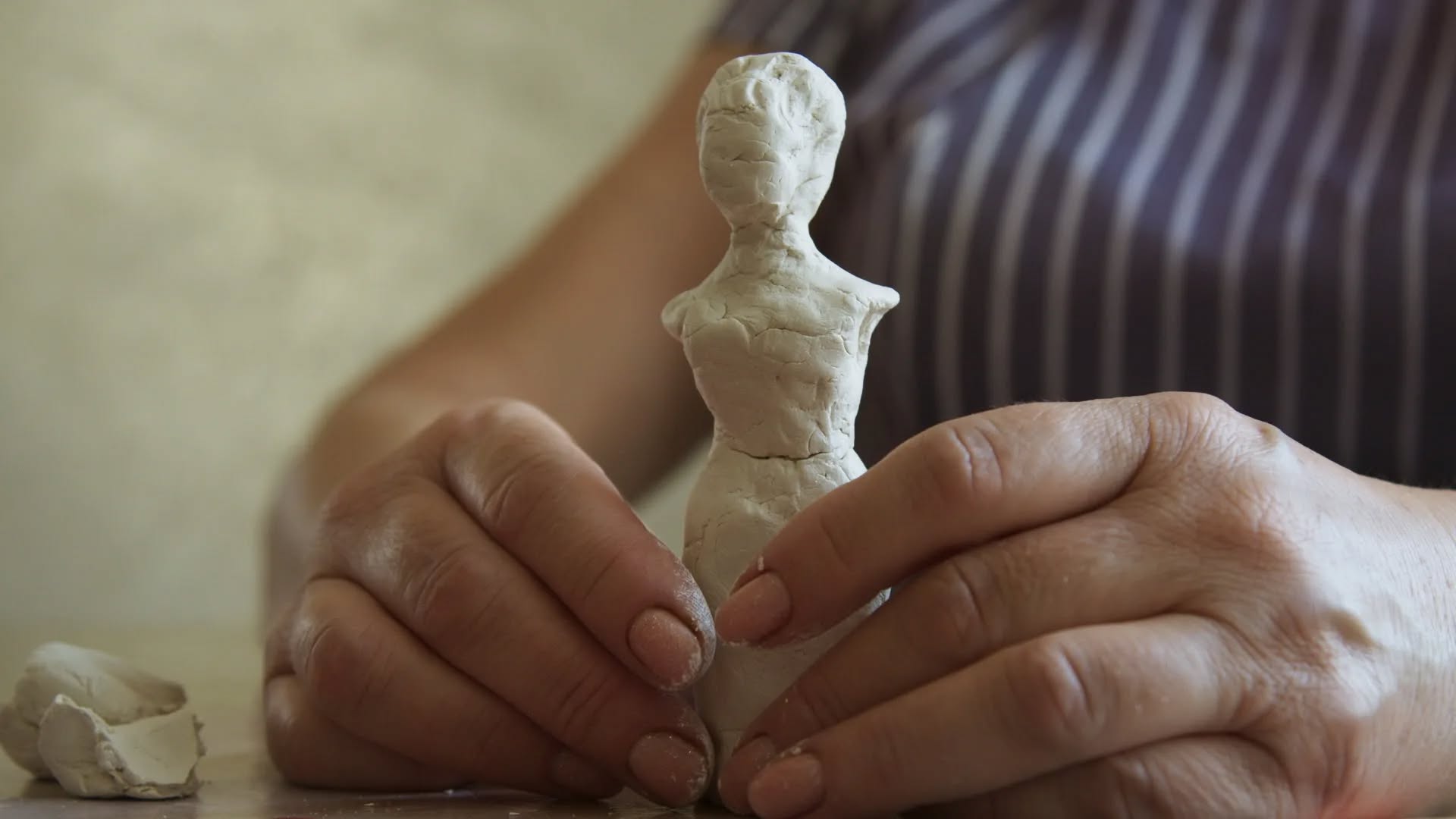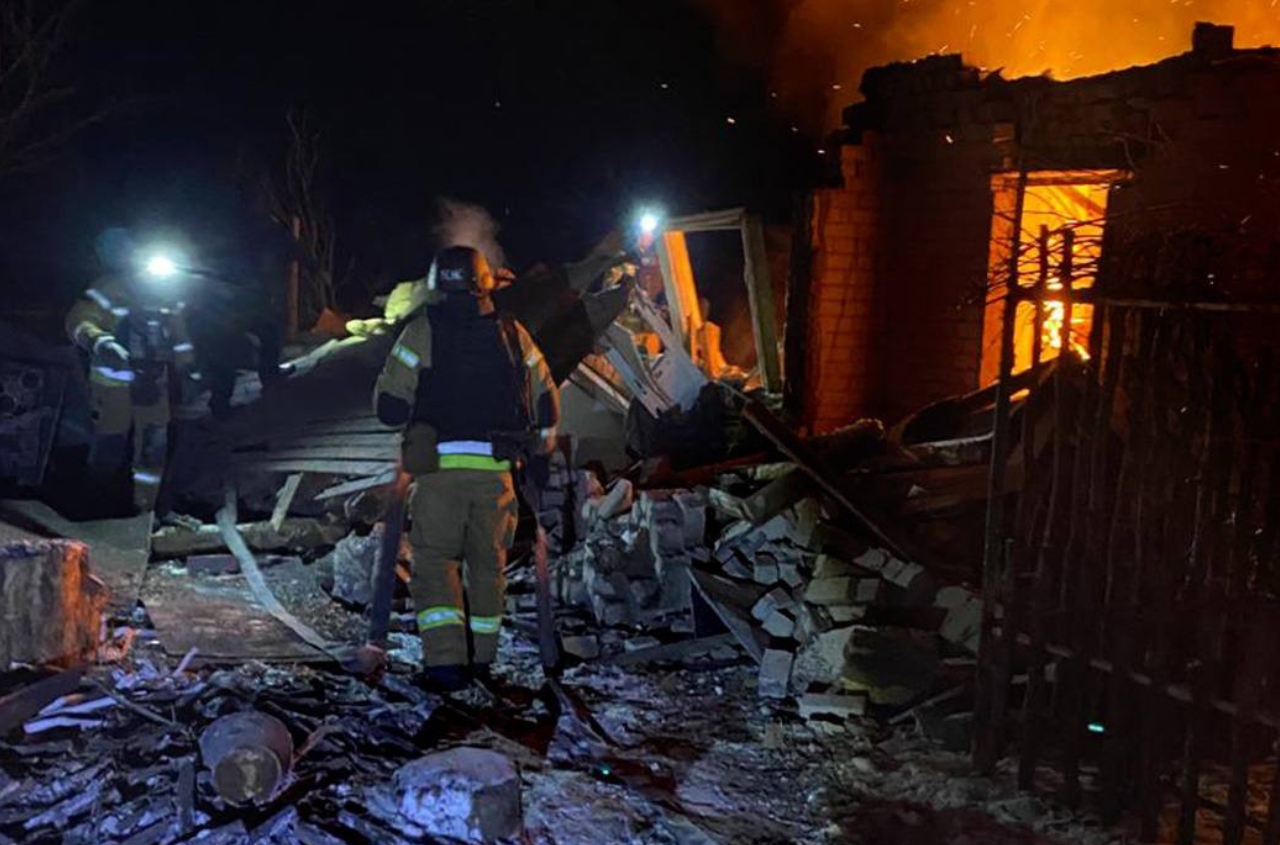Corruption and war remain the primary problems for Ukrainians. Interestingly, corruption in matters of future recovery concerns the population even more than the prospect of renewed military actions. These findings were presented by Transparency International Ukraine in the second wave of a sociological study conducted by the research agency Info Sapiens on behalf of the organization, with support from the USAID project "Support to Anti-Corruption Champions in Ukraine (SACCI) VzaemoDiya." The survey on the needs and expectations regarding the future reconstruction of Ukraine was conducted among the general population and mayors.
In general, Ukrainians will approach 2024 with more pragmatic and sober views, while also demonstrating a strong willingness to engage in societal processes, according to the conclusions drawn from the study of public opinion.
MAIN ISSUES UKRAINE FACES
As in March, Ukrainians consider the following three issues to be the most significant: war (November 96%, March 98%), corruption (November 88%, March 77%), and destruction of infrastructure and housing (November 82%, March 87%). There are fewer concerns about war and destruction, while corruption risks worry Ukrainians more: the figure has grown by 11%.
Ukrainians are now more concerned about the problems associated with the economy: the high cost of living, low incomes, and the outflow of the able-bodied population from Ukraine.

According to IDPs in October-November, they mostly plan to return home like they did half a year ago (November 63%, March 62%). There are fewer people who want to stay in the city where they found refuge since the beginning of the war. The main restraining factors for IDPs in terms of returning home remain the lack of security, possible blackouts, or the lack of electricity and heating. However, nowadays, the developed infrastructure (kindergartens, schools, and hospitals) is becoming less important as a reason to stay in a place of temporary refuge.
HOW DO UKRAINIANS ASSESS THE PROCESSES OF RECONSTRUCTING DAMAGED FACILITIES IN THE COUNTRY?
In general, the current reconstruction processes meet or exceed the expectations of 46% of Ukrainians. They are most positively perceived in the Eastern (52%) and Northern (50%) regions of Ukraine. However, Kyiv residents are more critical in their assessment; their expectations are often not met; 51% of the capital’s residents think so. The reconstruction fully meets the expectations of 39% of Kyiv residents.
Every third adult Ukrainian (31%) knows or has seen examples of what has already been rebuilt. The vast majority of them (74%) are satisfied with the result.
Reconstruction is most noticeable in the capital (59%), in the Northern (42%) and Eastern regions (41%). Residents of the South (33%) and the Central region (22%) are less aware of the ongoing reconstruction processes; the West (19%) is the least aware.
Among the respondents, 17% suffered damage to property (mainly real estate). The highest number of victims accounts for the East of Ukraine: every second person suffered losses. The South is ranked second (32%).
The majority (65%) of those who suffered damage and destruction did not apply for compensation. Of these, a significant part (37%) believes that the state has more urgent needs, 12% of respondents believe that there are people who have suffered more, so the state should help them. 26% did not apply for assistance because they did not believe that they would receive it.

AID AND FUNDING
Since the beginning of the full-scale invasion, almost half of the citizens (42%) have received at least some aid. Most of them are in the East — 88%, in the South — 63%, and in the Central region — 25%.
According to the respondents, the main sources of assistance are international funds (35%), the state (33%), Ukrainian CSOs, foundations and volunteers (28%), and international CSOs (25%).
43% of Ukrainians note the significant contribution of international donors to the reconstruction of Ukraine. Young people most positively assess the assistance of international partners primarily because of their better awareness.
In general, residents of all regions positively assess the contribution of international donors: the East (46%), the North (49%), the capital (50%). However, in some regions, people are poorly aware of the participation of international partners; in the Western region, 47% of respondents are not aware of this, in the Central region — 43%.
Read full report here.





















